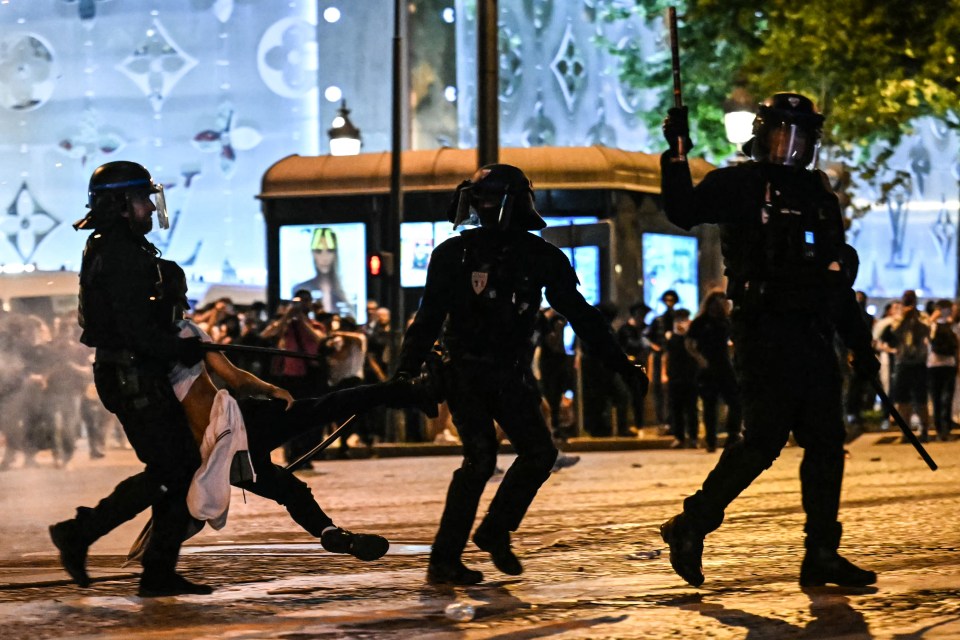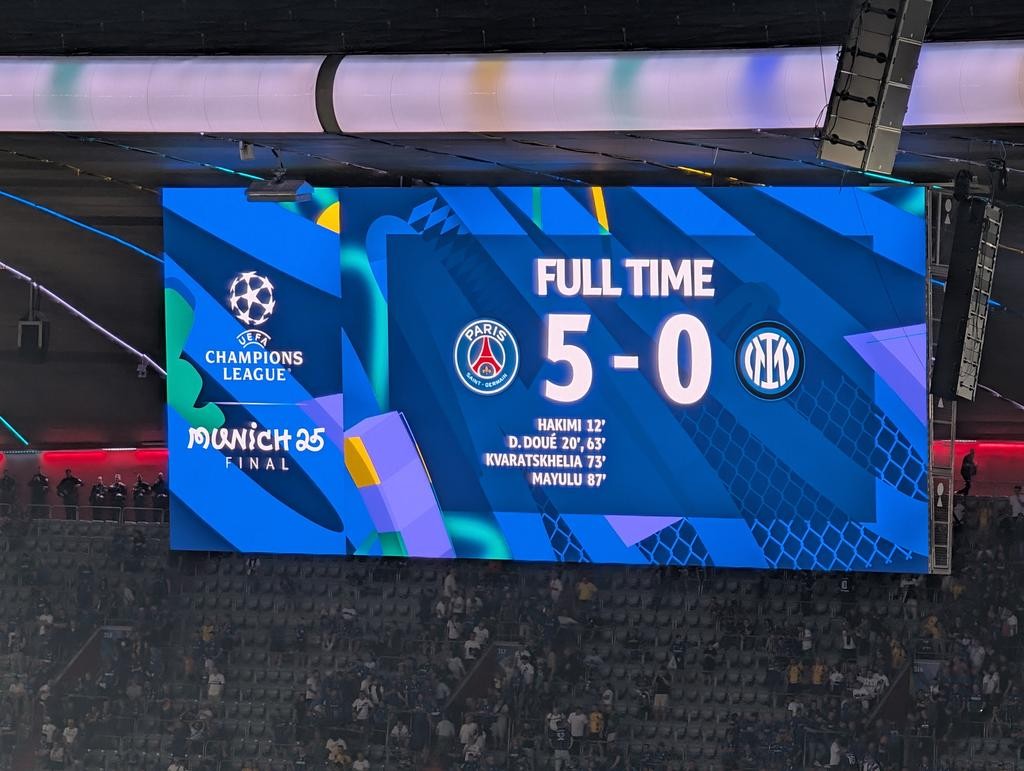Paris Saint-Germain’s historic triumph in the UEFA Champions League was meant to be a night of jubilation—not tragedy. But instead of marking a moment of national pride and sporting excellence, Saturday night descended into violence, chaos, and heartbreak on the streets of France. What should have been a unifying celebration became a grim reflection of deeper societal issues and a cautionary tale about the fragile line between festivity and disorder.
A Night of Victory Marred by Violence
As PSG clinched a 2-0 victory over Inter Milan with goals from Achraf Hakimi and rising star Desire Doue, jubilant fans flooded the streets, especially the famed Champs-Élysées in Paris. But the atmosphere quickly soured.
Two people lost their lives in unrelated incidents tied to the chaos:
A 17-year-old boy was fatally stabbed in the chest during an altercation.
A 20-year-old woman was struck by a vehicle reportedly filled with PSG supporters.
These aren’t just statistics; they are human tragedies that underscore the volatility that often accompanies large-scale celebrations—particularly in urban centers already on edge.
Police Response and Public Disorder
Law enforcement had anticipated large gatherings, but the scale and intensity of the unrest were alarming. A total of 426 arrests were made nationwide, including 417 in Paris, where 216 individuals remained in police custody as of Sunday morning.
The police reported deploying water cannons as early as halftime, after crowds broke through barriers near the Place de l’Étoile. Officials claimed many of those pushing forward were not watching the match but instead appeared intent on confrontation.
In addition to the arrests:
192 people were injured, including 13 police officers.
Firefighters responded to 148 separate fires.
46 vehicles were torched.
Shops were looted, and missiles—from bottles to fireworks—were thrown at police.
Celebration or Civil Unrest?
This raises a pressing question: At what point does a celebration become civil unrest?
When fans transform iconic landmarks into battlegrounds and emergency services are overwhelmed, we must reconsider how we approach public gatherings in moments of national significance.
Sporting victories are supposed to foster unity, but the events following PSG’s win reflect a deeply rooted tension in French society. Whether driven by opportunism, frustration, or systemic disenfranchisement, these outbursts are often a symptom of broader issues, not spontaneous madness.
Comparative Perspective
This is far from the first time Paris has seen post-match celebrations devolve into chaos. Similar scenes erupted after France’s 2018 World Cup win. Other cities across Europe—from Madrid to Naples—have witnessed comparable unrest during high-stakes football events.
But the scale of this particular incident—two deaths, nearly 200 injuries, hundreds of arrests—is among the worst in recent years. And it calls for more than just law enforcement measures.
What Comes Next?
Authorities will undoubtedly review security protocols, but there is a deeper reckoning to be had:
Why do certain segments of the population see such nights as an opportunity for violence?
Are there gaps in how we engage younger demographics in urban areas?
How do we create spaces where celebration doesn’t result in catastrophe?
There are no easy answers, but brushing it off as mere “fan misbehavior” would be a dangerous oversimplification.
A Bitter Contrast
As the players held the trophy aloft, draped in the colors of Paris and France, they celebrated a hard-fought, long-awaited glory on the pitch. But just a few kilometers away, ambulances raced down the boulevards, storefronts were shattered, and lives were lost.
This editorial is not an indictment of football fans—it’s a plea for reflection. Celebrations should bring light, not fire. Triumph should inspire, not ignite. Until we address the fractures revealed on nights like these, even the sweetest victories will leave behind a bitter aftertaste.
—


